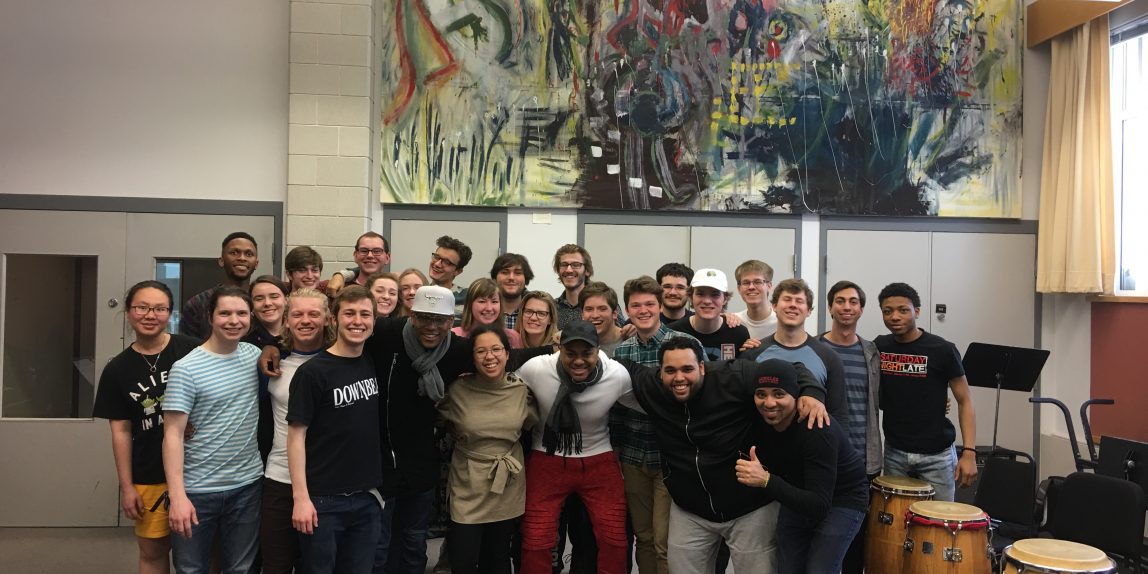Today I want to give a shout out to one of the most respected voices out of the New York Afro-Cuban scene!
Born in Havana, Cuba, Pedrito Martínez was enamored by the Afro-Cuban music he heard on the street growing up. It is through these songs and rhythms that he eventually became initiated into the religion of Santería, continuing to master the musical practices that breathe life into the practice.
In case you don’t know, Santería is a religion that has origins in the Yoruban religions of West Africa. When Africans were forcibly brought to Cuba as slaves, these religions mixed and homogenized and then eventually became synchronized with Catholicism. Music and dance art forms are a focal part of the religion because it is through rhythm and song that practitioners are able to communicate with the many Orishas (deities). There is a lot more to the story so download my thesis and watch my lecture recital to learn more! Just click here. You can also see some photos from my trip in a previous blog post.
A powerful vocalist and phenomenal percussionist, Martínez seems to have no weaknesses, living and breathing both sacred songs for the for the Orishas as well as music from secular traditions like Rumba. Whether as a band leader or a collaborator, Martínez has been a lead vocalist on some of the most notorious Afro-Cuban albums that have been recorded in the United States (look up Yosvany Terry’s New Throned King).
I was so fortunate to meet and have a workshop with Pedrito and his band at Lawrence University in the Spring of 2018. He worked with our nationally recognized Afro-Cuban ensemble Tambo Toké that I co-directed using music I learned from a Santerían priest (called a Babalawo) while I was conducting research in Havana and Matanzas.
Everyone in this band is incredibly kind and genuine! They didn’t know what they were getting themselves into at first, but as they walked in to us singing traditional songs they immediately lit up and started singing along. They were so happy to hear these songs and rhythms in unexpected places (meaning Northern Wisconsin). “It’s good for the culture,” Martínez told me.
The most humbling moment was when Pedrito told me that the songs I was singing were just as he had learned them growing up. I am so grateful to this man for his kind words and encouragement and artistry! Studying this music and experiencing this culture and people has been one of the most genuine human experiences I have had in my life. I also need to thank my teacher in Matanzas, Cuba, the Babalawo Gilberto Morales, for being so open, and informative, and thorough.
The night after our workshop, the band put on a fantastic live performance that was definitely as close as you can get to going to a nightclub in Havana without traveling south on a boat or plane. Check out Pedrito’s Tiny Desk Concert and experience how good and infectious this music feels!
Aché!
